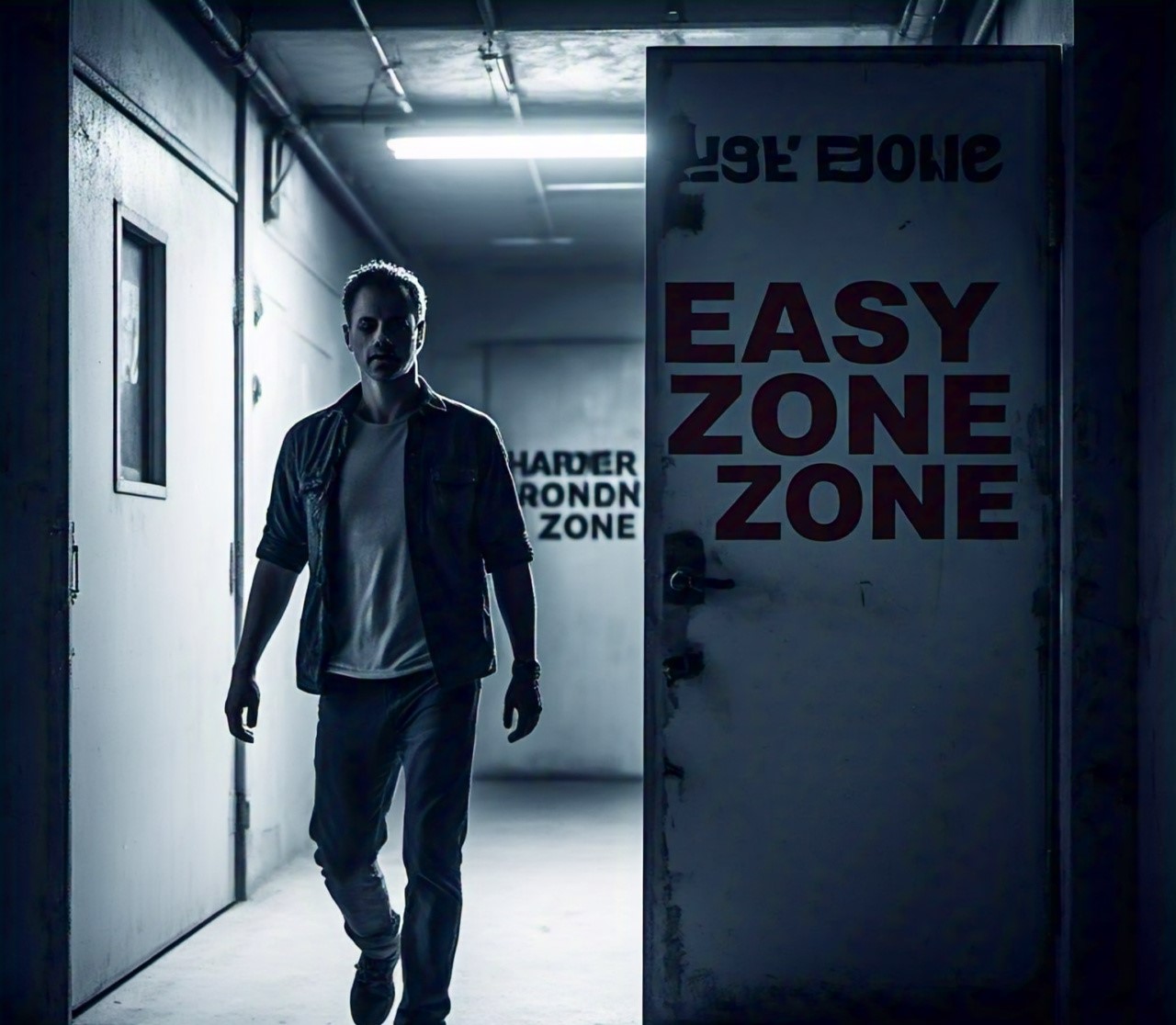Obviously, we live in a world overflowing with options like from what to eat, wear, and watch to how to work, grow, and live. Freedom of choice is almost always sold as the ultimate luxury, but in practice, it can become a mental minefield. Take a minute or two think about this, have you ever felt exhausted just trying to pick what to focus on for the day? If you have, it is not a character flaw, it is psychology, and Hick’s Law explains this.
Hick’s Law, named after British psychologist William Edmund Hick, states that the time it takes to make a decision increases with the number and complexity of choices, in other words the more options you have, the more your brain slows down, deliberates, and hesitates.
And in self-development, this law has deep implications: Your progress, productivity, and peace of mind often depend not on having more options, but on having fewer and more meaningful ones.
Hick’s Law Psychology: Why More Options Mean Less Clarity
You know, at first glance, variety can feel very empowering; the idea that you can become anything, go anywhere, or try every productivity method out there sounds inspiring until it is not, because when your brain is bombarded with multiple possibilities, it must weigh each one, consider outcomes, and fear missing out on the “best” choice. It is this cognitive overload that leads to decision fatigue, a mental drain that weakens your focus and self-control.
Every decision, even the small ones like what app to open or what workout to try costs you mental energy, and when too many choices compete for your attention, your inner clarity gets drowned in mental noise, and in many cases, people do not fail because they are unmotivated, but they fail because they are overstimulated.

The Freedom Trap: How Too Many Choices Create Indecision
Again, you know, ironically, the freedom to choose can become a form of paralysis. Hick’s Law explains why people often delay major life decisions; it is not because they do not care, it is because they care too much, and the weight of choosing wrong can create a large circle that they start to go over and over and over again.
Okay, think about this: You want to improve your life, right? Now because of that you research morning routines; then you find 10 different strategies, now you try to combine them, and switch between them, or wait to decide which is “best,” now weeks pass. You are still stuck in research mode, progress is paused, not for lack of options, but because of them, too many of them.
In self-development, clarity is not found in abundance, it is found in elimination; I say that to say this: The more paths you keep open, the harder it is to walk confidently down any of them, because there is a quiet strength in choosing less so you can do more, so you can do more better. And this reminds me of an episode from the podcast, Daily Stoic by Ryan Holiday, and I will do well to share at the end of this article.
Simplify to Amplify: Using Hick’s Law to Streamline Your Life
The answer to choice overload is not apathy; it is intentional simplicity. So apply Hick’s Law to your life by deliberately reducing the number of decisions you make daily, create mental shortcuts, habits, automate low-stakes choices like meals and outfits, and commit to a limited number of meaningful goals.
And here is how to put it into practice:
- Limit options: Choose 1 or 2 productivity tools or self-care routines and stick to them for a month.
- Create systems: Design daily structures that reduce your need to decide on the go.
- Set boundaries: Say no to options that are good, but not aligned with your long-term growth.
When you reduce the clutter of choice, you gain mental clarity; your mind becomes lighter, quicker, and sharper. You are not weighed down by “what ifs” or “maybes” but you are carried forward by momentum.
Read Also: Gilbert’s Law: Own The Responsibility, Not The Excuse
Read Also: The Illusion Of Choice And How It Affects You
Read Also: Parkinson’s Law and The Art of Working With Urgency Without Stress
Conclusion
Hick’s Law does not just describe how we process choices; it warns us about the hidden burden they bring, especially in a today’s world that tells you to want everything, the secret to growth is learning to want less but choose better.
You do not need every path; you just need the right one and the courage to walk it without turning back every five steps to look at what you “might” be missing.
Self-development is not just about making perfect choices; it is also very very much about making fewer choices that lead to consistent action, because when you simplify your decisions, you amplify your life.
Here is the simple recipe for improvement and for happiness. It comes from Marcus Aurelius and the fact that it came from such a busy man with so many obligations and responsibilities should not be forgotten.
“If you seek tranquillity,” he said, “do less.”
And then he follows the note to himself with some clarification. Not nothing, less. Do only what’s essential. “Which brings a double satisfaction,” he writes “to do less, better.”
Follow this advice today and everyday. So much of what we think we must do, so much of what we end up doing is not essential. We do it out of habit. We do it out of guilt. We do it out of laziness or we do it out of greedy ambition. And then we wonder why our performance suffers. We wonder why our heart is not really in it.
Of course it is not. We know deep down there is no point.
But if we could do less inessential stuff, we’d be able to better do what is essential. We would also get a taste of that tranquility that Marcus was talking about. A double satisfaction.
Daily Stoic By Ryan Holiday
So my dearest reader choose clarity! Choose progress! And choose less!





